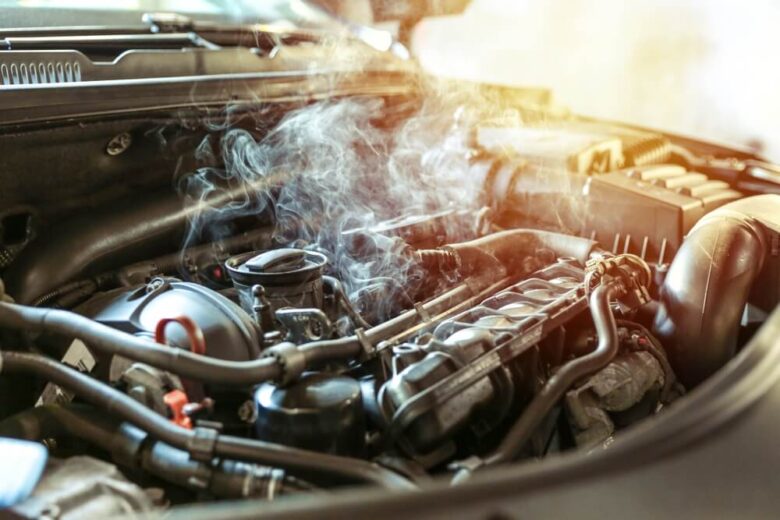The heart of your vehicle, the engine, needs to be kept cool to function properly. If ignored, engine overheating can cause serious damage. Every car owner needs to know what causes this problem and how to fix it. Knowing what can go wrong can save you time and money while you’re on the road or running errands.
In this tutorial, we’ll discuss the engine cooling system, common causes of engine overheating, and how to diagnose the problem. We can spot early warning signs and prevent future complications! Let’s get started maintaining your engine so you can drive with confidence.
Engine Cooling: Know Its Value
Your car’s engine generates heat. Thermal management is critical to its performance and longevity. Temperature control relies on a highly efficient cooling system. Engine coolant absorbs heat and carries it away from vital components. If metal parts aren’t cooled, they can warp or seize, causing serious damage.
Engine overheating can reduce fuel economy and power. High temperatures reduce combustion efficiency. Understanding the importance of this system will help you understand why regular maintenance is necessary. Check your coolant level and hoses to avoid roadside problems. The life of your engine depends on maintaining your cooling system.
Common Causes of Engine Overheating:
The owner is concerned about engine overheating. Learn more about common reasons to prevent disaster. Common problems include low coolant level. When you drive too slowly, your car can’t absorb engine heat, causing high temperatures. Another possibility is a bad thermostat. If this critical component isn’t opened or sealed, it can disrupt the flow of coolant, potentially causing overheating.
Clogged hoses are another problem. Over time, dirt can block the flow of coolant, creating hot spots in the engine. A faulty water pump can also prevent coolant from flowing. Without adequate fluid flow, engine temperatures can rise rapidly. A leaking gasket can cause coolant to leak, reducing efficiency. A leak check is essential for optimum performance.
Signs of Engine Overheating:
- An overheating engine indicates a problem. Early detection of warning symptoms is crucial.
- A rising dashboard thermometer is a key sign. If you exceed the red zone, take immediate action.
- Strange odors can indicate a problem. Burning oil or coolant can indicate overheating, while a sweet odor can indicate an antifreeze leak.
- Be alert to strange noises. A hissing sound indicates steam escaping from a hot component and indicates a hazard.
- Check for performance issues. If your car hesitates or struggles to go uphill, the heat could be causing engine problems.
- After parking, check under the car for leaks. Puddles of coolant usually indicate a problem that requires immediate attention.
How to Troubleshoot Engine Overheating:
- First, check your radiator coolant. Low levels can cause your engine to overheat quickly.
- Check hoses and connections for leaks and damage. Cracks can cause coolant leaks and performance issues. Check your thermostat. If it’s stuck, it’s preventing engine coolant from circulating.
- Check your water pump. Unusual noises can indicate a faulty pump that’s blocking the flow of coolant.
- Don’t neglect your radiator. Remove any dirt or debris that may be blocking airflow.
- Finally, pay attention to the warning light on your dashboard. They often provide important information about your engine temperature.
- By approaching each component methodically, you’ll increase your chances of finding the source of your overheating.
Tips to Prevent Your Engine from Overheating:
Regular maintenance is the best way to prevent your engine from overheating. Check and top off your coolant regularly. Coolant protects your engine, so don’t skip this basic step. Pay attention to hoses and belts. Cracks or leaks can cause major problems. Prevent unexpected failures by replacing worn parts. Change your engine oil regularly according to the manufacturer’s instructions. Clean oil regulates heat and lubricates moving parts.
Follow driving habits. Avoid heavy traffic, as stop-and-go driving can wear out your engine more than highway cruising. Remove debris from the radiator to improve airflow. Clear paths ensure efficient cooling and improve engine health.
When to Seek Professional Help:
Know when to call a professional for engine overheating problems. If ignored, minor problems can quickly develop. If troubleshooting fails, contact a mechanic. They have the skills and equipment to diagnose the problem. If overheating is ignored, serious damage can occur. This can lead to expensive repairs or engine failure.
An experienced technician will diagnose and recommend vehicle-specific solutions. Their advice can save you time and money in the long run. Think safety first. If you are unsure about car maintenance, leave it to the experts. You have a problem with your vehicle that needs to be professionally repaired.
Conclusion:
If ignored, engine overheating can cause catastrophic damage. Troubleshooting requires knowledge of the root cause. Overheating can be significantly reduced by taking preventative measures. Regular maintenance and monitoring of engine performance are crucial. Seek expert help when necessary. A trained mechanic can give you advice that can save you time and money.
Check your vehicle’s coolant and radiator levels. Knowledge makes stronger drivers. Proper maintenance will keep your engine running smoothly for years to come.
FAQs:
1. What causes an engine to overheat?
A low coolant level, a bad thermostat, or a faulty water pump can all cause your engine to overheat. Leaks in the cooling system or clogged hoses can also cause overheating.
2. Can I tell if my engine is overheating?
A higher than normal temperature gauge, a warning light on the dashboard, and strange smells like steam or burnt oil under the hood are all signs that your engine is overheating.
3. Can I drive a hot engine?
You should not drive an overheated vehicle. It can cause serious injury and put you in trouble.
4. Car Overheating: What to Do First?
If your car is overheating, turn off the air conditioning and turn the heater on full blast. This will keep your engine cool when you find a safe parking spot.
5. Is My Car Overheating? When Should I Seek Professional Help?
If basic troubleshooting fails, a professional mechanic should be consulted. Repeated concerns may indicate a significant problem that requires expert help.




